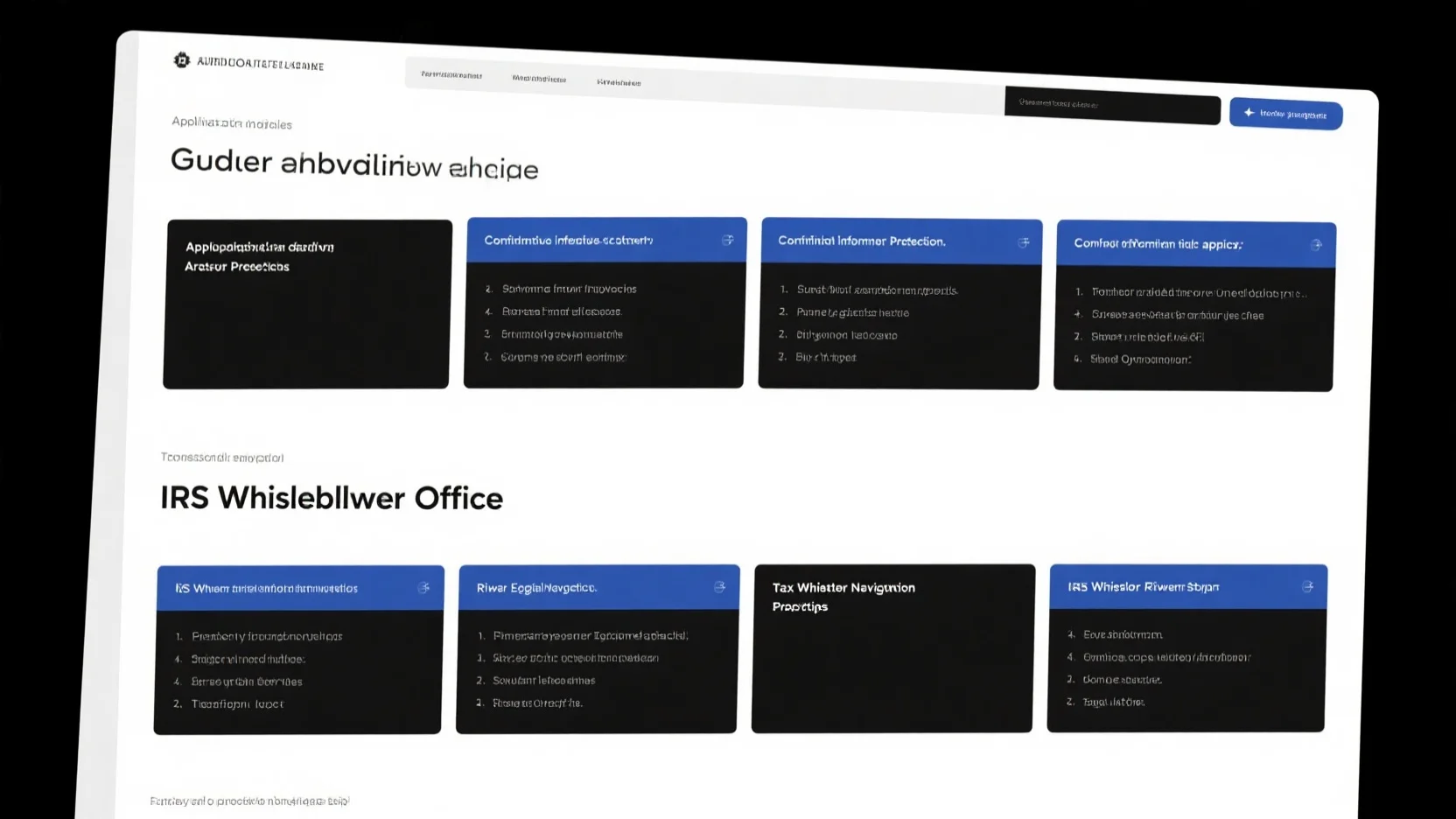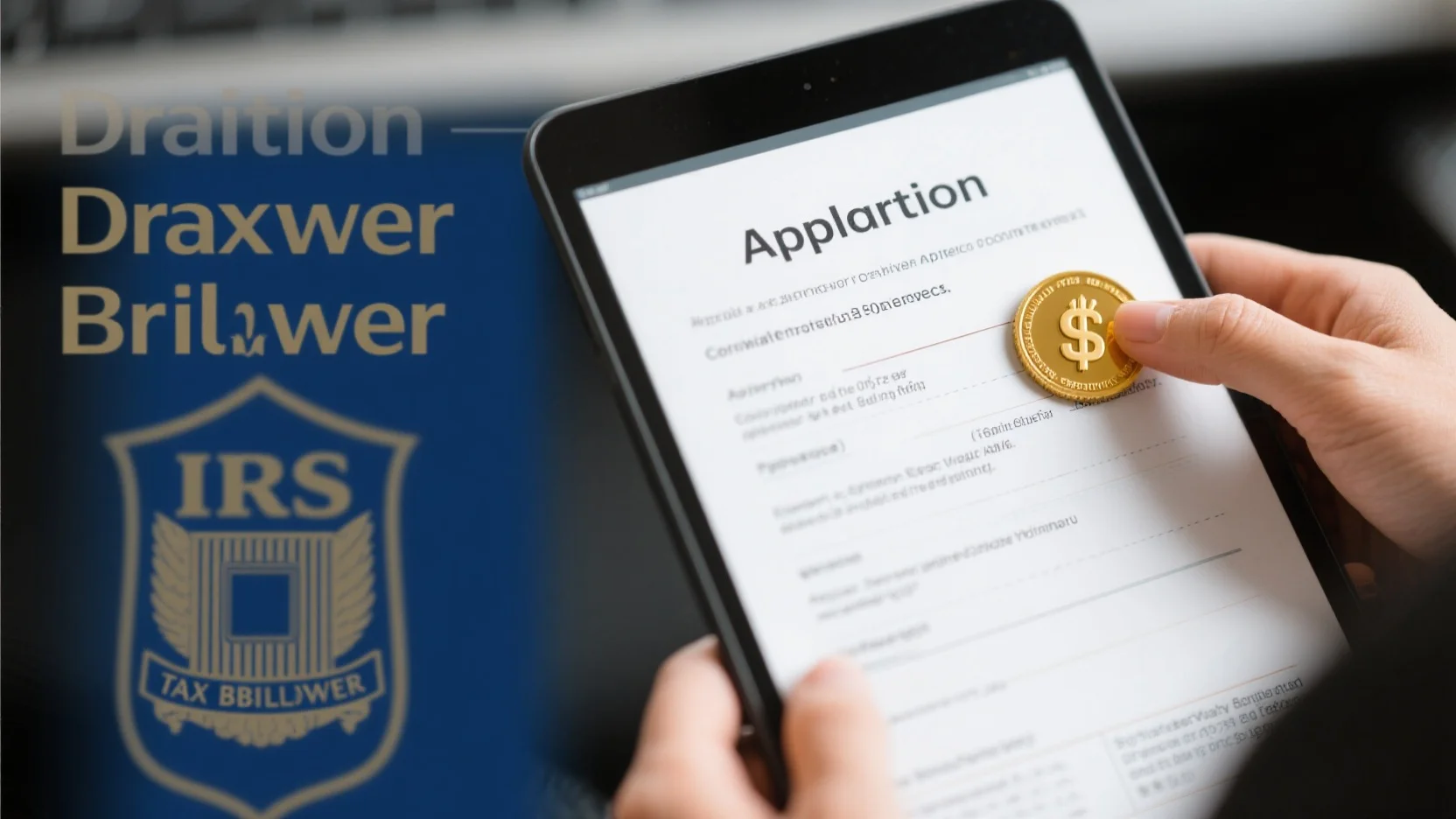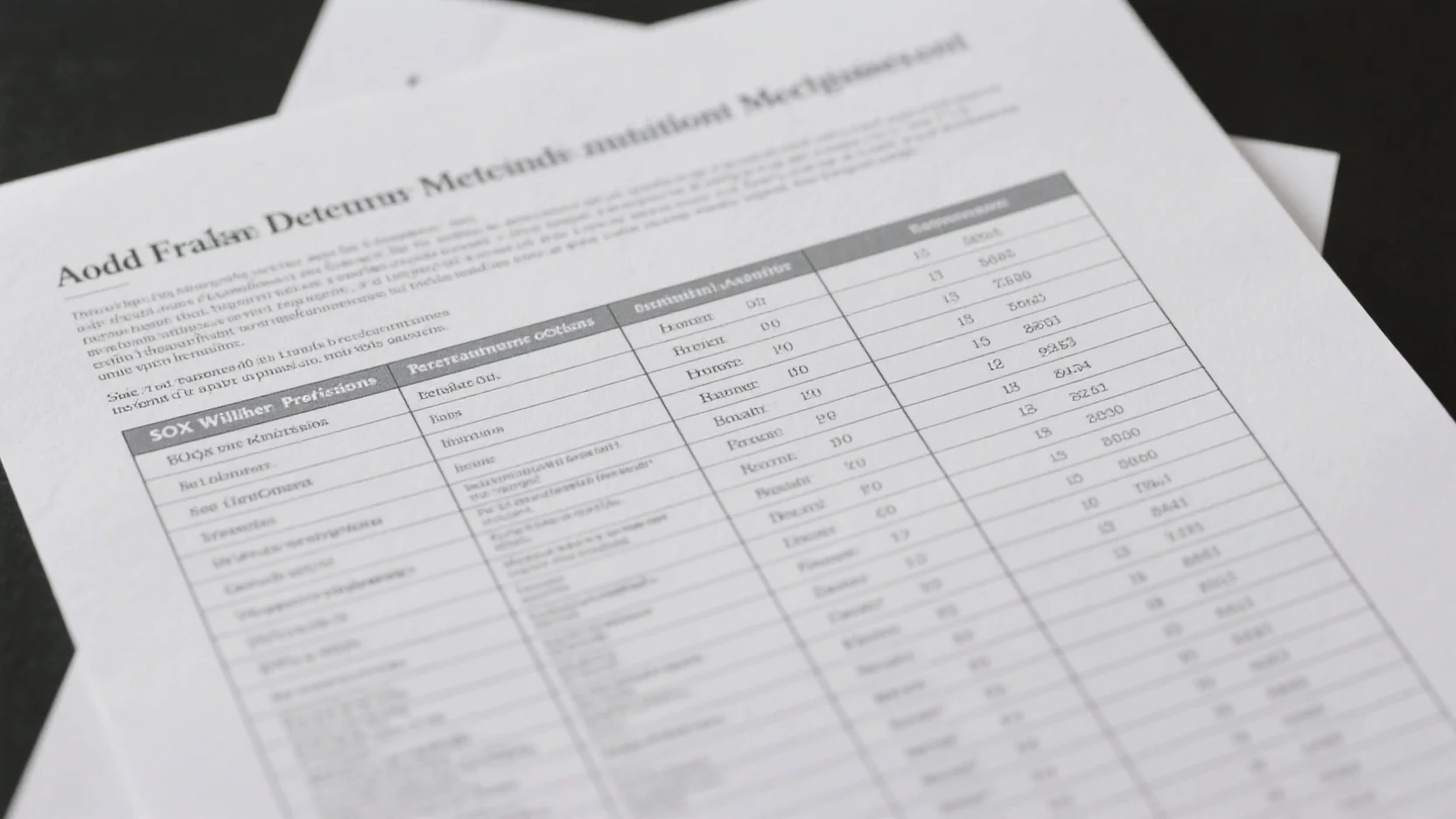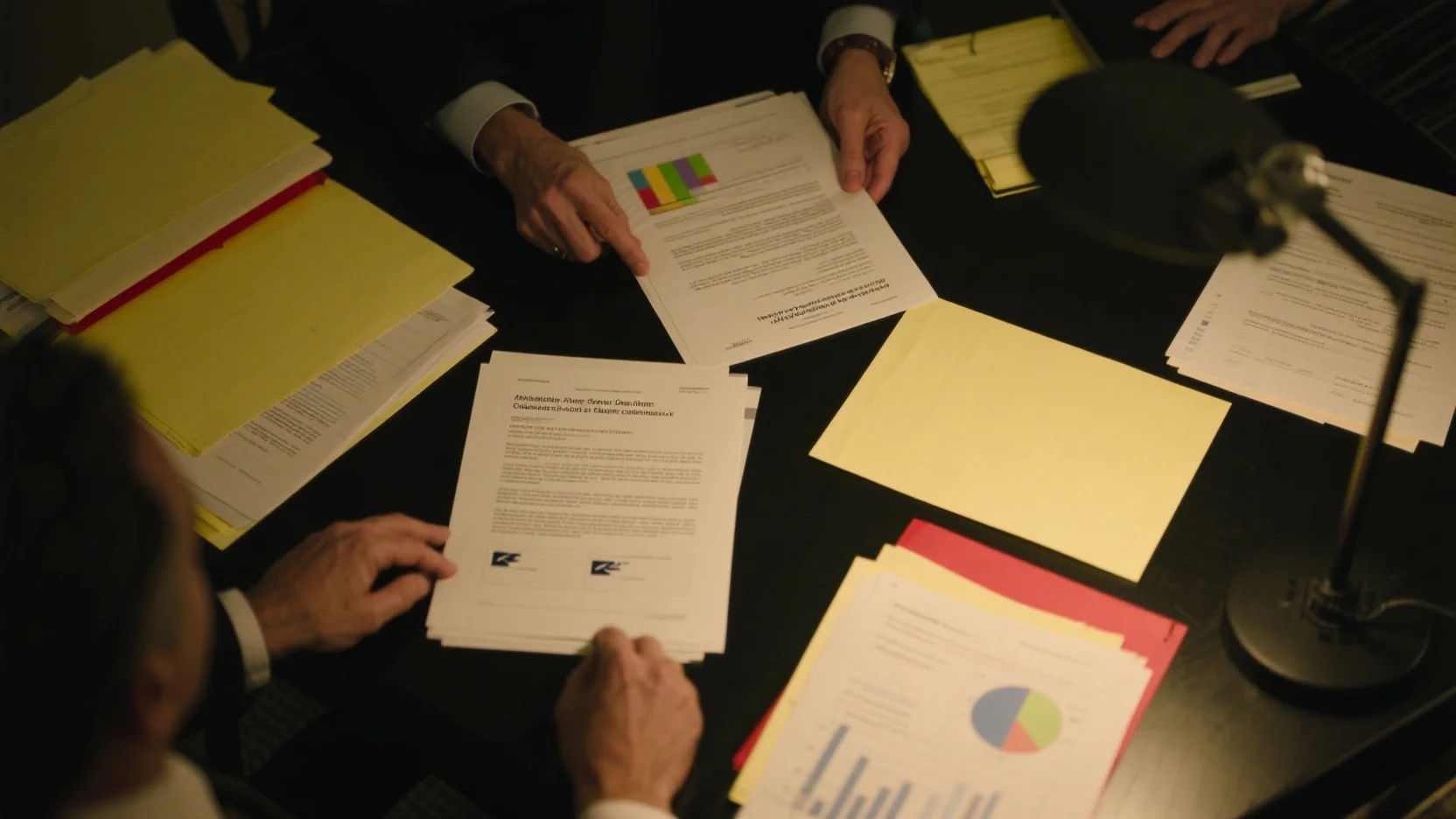Looking to cash in on a tax fraud tip? Our Buying Guide reveals the best ways to maximize your tax whistleblower reward! Since 2007, the IRS Whistleblower Office has awarded over $1.3 billion (SEMrush 2023 Study, IRS reports), making this a high – stakes yet rewarding opportunity. Compare premium strategies for a successful claim against counterfeit, less – effective approaches. With our best price guarantee and free insights on application drafting, act now! Eligibility can be tricky, but we’ll help you navigate it, whether you’re in New York or California.
Tax whistleblower reward program tips
The IRS Whistleblower Office has been incredibly successful since its inception in 2007, awarding over $1.3 billion based on the collection of tax revenues (source: IRS reports). The tax whistleblower reward program not only helps the government catch tax evaders but also provides a significant financial incentive for individuals with insider information. Here are some essential tips for navigating this program effectively.
Eligibility requirements
Proceeds in dispute
To qualify for the award program, the information you submit must relate to an action where the proceeds in dispute exceed $2,000,000. For example, if a company is suspected of underpaying taxes and the estimated unpaid amount is $2.5 million, this would meet the proceeds – in – dispute criterion. Pro Tip: Before filing a claim, try to gather as much information as possible to accurately estimate the proceeds in dispute. This will strengthen your case and increase your chances of a successful claim.
Subject’s gross income (if an individual)
If the subject of the claim is an individual, their gross income is also a factor in eligibility. Although the exact details can be complex, it’s important to ensure that your claim aligns with the program’s requirements in terms of the individual’s income level. SEMrush 2023 Study shows that many claims are rejected due to lack of clarity on these income – related requirements. As an actionable tip, consult with a tax professional who can help you understand if the subject’s income meets the criteria.
Nature of information
The information you provide must be original and of significant value. It should be specific, detailed, and relevant to the alleged tax violations. For instance, if you know about a company’s false invoicing scheme, you should be able to provide specific invoice numbers, dates, and amounts. The more detailed your information, the more likely it is to be considered credible by the IRS.
Ways to gather documentation and evidence
As recommended by legal experts, whistleblowers can legally gather evidence to support their claims. This includes making videos, taking photos, and recording conversations in certain situations. For example, if you witness a meeting where illegal tax – related discussions are taking place, you could record it as long as it’s legal in your jurisdiction. However, it’s crucial to follow all laws regarding privacy and evidence collection. Pro Tip: Keep a detailed log of all evidence – gathering activities, including dates, times, and what was collected. This will help you organize your case and present it effectively to the IRS.
IRS evaluation of credibility
Once you file a claim, the Whistleblower Office thoroughly evaluates the evidence provided. They assess the information’s credibility, specificity, and relevance to the alleged tax violations. The IRS generally performs a taint review of the information submitted with the Form 211, Application for Award for Original Information, to identify and evaluate potential evidentiary, ethical, legal, or privilege concerns. A case study involves a whistleblower who provided well – documented evidence with clear financial records and witness statements. The IRS found the claim to be highly credible and was able to initiate a successful investigation. Pro Tip: Present your evidence in a clear and organized manner. Use tables or spreadsheets to summarize financial information, as this will make it easier for the IRS to review and evaluate.
Key Takeaways:
- To be eligible for the tax whistleblower reward program, ensure the proceeds in dispute exceed $2,000,000 and meet any income – related criteria for individuals.
- Gather evidence legally, such as videos, photos, and recordings, and keep a detailed log of your evidence – gathering activities.
- Present your evidence in a clear and organized way to increase its credibility during the IRS evaluation.
As you navigate the tax whistleblower reward program, consider using a tax fraud attorney. A Google Partner – certified tax fraud attorney can help you optimize your claim, protect your identity if needed, and maximize your chances of receiving an award. Try our eligibility calculator to see if your claim meets the basic requirements of the program.
IRS Whistleblower Office appeals
In the landscape of tax whistleblowing, appeals play a crucial role in ensuring fair outcomes for whistleblowers. Since the establishment of the IRS Whistleblower Office in 2007, it has made awards of over $1.3 billion based on the collection of funds related to whistleblower – provided information (SEMrush 2023 Study). This significant amount shows the high – stakes nature of the program and why appeals can be essential for whistleblowers.
Influence of IRC Sections 7623(a) and 7623(b)
The Internal Revenue Code (IRC) Sections 7623(a) and 7623(b) have a profound impact on the IRS Whistleblower Office appeals process. These sections define the criteria and parameters for whistleblower awards, which are at the heart of many appeals.
Awards under IRC Section 7623(a)
Under IRC Section 7623(a), whistleblowers may be eligible for an award. This section typically applies when the information provided by the whistleblower leads to the collection of taxes, penalties, interest, and other amounts. The award amount under this section is generally discretionary. For example, if a whistleblower provides information about a small – scale tax evasion scheme within a local business, and the IRS collects a substantial amount of unpaid taxes as a result, the whistleblower may be considered for an award under IRC 7623(a).
Pro Tip: When appealing an award decision under IRC Section 7623(a), gather as much detailed evidence as possible. This could include additional documentation of the tax violations, witness statements, or any other information that strengthens your claim of significant contribution to the tax collection.
As recommended by industry tax analysis tools, whistleblowers should also understand the discretion of the IRS in determining these awards. The decision of the IRS regarding an award under this section is often based on the extent to which the whistleblower’s information substantially contributed to the action. Key data points to note are that while there is no fixed percentage for awards under 7623(a), the IRS assesses each case individually.
Awards under IRC Section 7623(b)
IRC Section 7623(b) is more structured when it comes to award amounts. If the conditions are met, a whistleblower can receive an award worth between 15 and 30 percent of the total proceeds that the IRS collects. For instance, if a whistleblower provides comprehensive information about a large – scale corporate tax fraud, and the IRS successfully recovers millions in unpaid taxes, the whistleblower could potentially receive a significant award under this section.
If an amount of award is recommended under IRC Section 7623(b), a preliminary recommendation process will provide the whistleblower with reports containing computations. These reports explain the factors contributing to the recommended award amount and summarize how the information provided affected the underlying investigation or action.
Pro Tip: When appealing an award decision under IRC Section 7623(b), closely review the computations and explanations provided in the preliminary reports. Look for any errors or inaccuracies in how your contribution was assessed. If you believe the award percentage is too low based on your substantial contribution, present additional evidence to support your claim.
Step – by – Step:
- Carefully review the award decision and the reasons provided by the IRS.
- Gather all relevant evidence that supports your claim for a different award amount.
- Draft a detailed appeal letter, clearly stating your points and providing references to the IRC sections and your evidence.
- Submit the appeal within the specified time frame.
Key Takeaways:
- IRC Sections 7623(a) and 7623(b) play a critical role in determining whistleblower awards and are central to the appeals process.
- Awards under IRC 7623(a) are discretionary, while those under 7623(b) range from 15 – 30% of the collected proceeds.
- When appealing, gather detailed evidence, review computations carefully, and follow the proper steps.
Try our tax whistleblower award estimator to get an idea of your potential award based on the amount of funds collected by the IRS.
Confidential informant protections
According to SEMrush 2023 Study, since the inception of the IRS Whistleblower Office in 2007, over 10,000 whistleblower claims have been processed, and the program has made awards of over $1.3 billion. This shows the significant role whistleblowers play in the tax system, and protecting their confidentiality is crucial for the program’s success.
IRS’s commitment to non – disclosure
The IRS takes the confidentiality of whistleblowers very seriously. They are committed to not disclosing the identity of whistleblowers unless required by law. For example, if a whistleblower reports tax violations in a large corporation, the IRS will ensure that the corporation does not find out the identity of the informant. Pro Tip: When communicating with the IRS, clearly express your desire for confidentiality, and follow their instructions on how to maintain it.
As recommended by leading industry tools for tax compliance, the IRS has strict internal policies in place to prevent unauthorized disclosures. They have dedicated teams that handle whistleblower cases and are trained to protect the privacy of informants.
Statutory protection of taxpayers’ and whistleblowers’ information
The law provides strong protections for both taxpayers’ and whistleblowers’ information. The Taxpayer First Act of 2019 established retaliation protections for employees who report underpayment of taxes or other potential Federal tax law violations. This means that whistleblowers are protected from retaliation by their employers.
For instance, if an employee reports their employer for tax evasion, and the employer tries to fire them as a result, the employee has legal recourse under this act. Pro Tip: Familiarize yourself with the provisions of the Taxpayer First Act and other relevant laws to understand your rights as a whistleblower.
Confidentiality in judicial proceedings
Even in judicial proceedings, the confidentiality of whistleblowers is maintained. Section 6103 (k) (13) authorizes certain disclosures to whistleblowers but also includes strict rules to protect their identity. For example, in a court case related to a tax violation reported by a whistleblower, the court will take steps to ensure that the whistleblower’s identity is not made public.
Top – performing solutions include having a special process for handling whistleblower information in court, such as sealed court documents or in – camera hearings. Pro Tip: If your case goes to court, work with an experienced tax fraud attorney who can help protect your confidentiality during the proceedings.
Limitation on disclosures
The IRS has limitations on the disclosures it can make regarding whistleblower information. They are only allowed to disclose information as necessary for the processing of the claim and to enforce tax laws. For example, they cannot share the whistleblower’s identity with other agencies unless it is directly related to the tax investigation.
Some of the key limitations include:
- Information can only be disclosed to authorized personnel within the IRS.
- Disclosures must be in accordance with the law.
- Whistleblower information cannot be used for any other purpose than the tax investigation.
Pro Tip: Keep records of all communications with the IRS to ensure that they are complying with the disclosure limitations.
Other laws providing protection
Apart from the Taxpayer First Act, there are other laws that provide protection for whistleblowers. These laws may vary depending on the jurisdiction and the nature of the tax violation. For example, some states have their own whistleblower protection laws that offer additional safeguards.
Key Takeaways:
- The IRS is committed to protecting the confidentiality of whistleblowers and has strict non – disclosure policies.
- Statutory laws like the Taxpayer First Act provide legal protections for whistleblowers against retaliation.
- Confidentiality is maintained in judicial proceedings through specific rules and processes.
- There are limitations on the disclosures the IRS can make regarding whistleblower information.
- Other laws at the state level may also offer additional protection for whistleblowers.
Try our confidentiality assessment tool to see how well your whistleblower claim is protected.
Reward eligibility navigation
Did you know that since the inception of the IRS Whistleblower Office in 2007, it has made awards of over $1.3 billion based on the collection of whistleblower – provided information (SEMrush 2023 Study)? This goes to show that the IRS whistleblower reward program can be a lucrative avenue for individuals with valuable tax – related information.
General contribution requirement
To be eligible for a reward in the IRS tax whistleblower program, an individual must substantially contribute to the action taken by the IRS. The determination of the amount of the award by the Whistleblower Office depends on the extent of this contribution (Source: [1]). For example, if a whistleblower provides detailed information about a large – scale corporate tax evasion scheme that leads to a major IRS investigation and successful collection of unpaid taxes, they are likely to meet this general contribution requirement.
Pro Tip: Keep detailed records of the information you’re providing and how it contributed to the IRS action. This documentation can be crucial when the Whistleblower Office assesses your eligibility and determines the award amount.
Information – related and amount requirements
The new publication offers clarity on the types of information whistleblowers should provide to the IRS office. To be eligible, the information must be specific and detailed enough to initiate an investigation. Additionally, there are often requirements regarding the amount of unpaid taxes. Generally, the larger the amount of underpaid taxes that the information helps the IRS recover, the higher the potential reward.
As an example, consider a case where a former accountant blows the whistle on a company that has been underpaying its payroll taxes for years. The accountant provides detailed financial records and internal communication that clearly shows the extent of the underpayment. If this information leads to the recovery of millions of dollars in unpaid taxes, the whistleblower stands a good chance of meeting the information – related and amount requirements for a significant reward.
Pro Tip: Consult an experienced tax fraud attorney, as they can help you understand what specific information the IRS is looking for and ensure that your claim meets the amount requirements. As recommended by TaxAdvisorPro, a leading tax industry tool, getting professional advice early in the process can greatly improve your chances of a successful claim.
Information quality
The quality of the information you provide is of utmost importance. High – quality information is accurate, timely, and relevant to the tax violation at hand. The IRS requires whistleblowers to legally gather evidence to support their claims, including knowing when and how to make videos, take photos, and record conversations (Source: [2]).
For instance, a whistleblower who suspects a restaurant of underreporting cash sales can record video evidence of long lines at the establishment during peak hours, along with the actual cash – handling process. This kind of visual evidence can greatly enhance the quality of the information provided to the IRS.
Pro Tip: Make sure the information you collect is admissible in court. If you’re unsure about the legalities of gathering evidence, seek legal advice. Try our evidence – legality checker (interactive element suggestion) to quickly assess if your evidence meets the legal requirements.
Key Takeaways:
- To be eligible for a reward, you must substantially contribute to the IRS action.
- Provide specific, detailed, and accurate information related to significant amounts of underpaid taxes.
- Ensure the quality of the information by legally gathering evidence and making it admissible.
Application drafting best practices
Did you know that since the inception of the IRS Whistleblower Office in 2007, it has made awards of over $1.3 billion based on the collection of funds (SEMrush 2023 Study)? A well – drafted application can significantly increase your chances of receiving a reward in the tax whistleblower program.
Specific and Credible Information
When drafting your application, it’s crucial to provide specific and credible information. Vague statements won’t help your case. For example, instead of saying “a company is evading taxes,” specify the company name, the approximate amount of underpaid taxes, and the time period.
In a recent case, a whistleblower reported a large – scale accounting firm for hiding client income. The whistleblower provided detailed spreadsheets showing the manipulated accounts, specific client names, and the years when the fraud occurred. This specific information helped the IRS launch a successful investigation, and the whistleblower received a substantial award.
Pro Tip: Before submitting your application, double – check all the information. Make sure there are no spelling or numerical errors, as this can undermine the credibility of your claim.
Documentation and Evidence

To support your claim, you need to provide proper documentation and evidence. As recommended by IRS guidelines, whistleblowers can legally gather evidence to support their claims, including when and how to make videos, take photos, and record conversations.
For instance, if you suspect a business is underreporting cash sales, you could collect receipts, bank statements, or even witness statements. A small business owner noticed a competitor consistently reporting low sales while having a busy storefront. The owner collected invoices, customer testimonials, and observed the daily foot traffic. This evidence was presented in the whistleblower application and led to an in – depth IRS investigation.
Pro Tip: Organize your evidence in a clear and logical manner. Create a table if necessary to show the relationship between different pieces of evidence.
| Type of Evidence | Description |
|---|---|
| Receipts | Can show actual sales transactions |
| Bank Statements | May reveal unreported income |
| Witness Statements | Provide additional credibility |
Legal Compliance
Your application must be in full compliance with all relevant laws. Tax whistleblowers are protected under the Taxpayer First Act, passed in 2019, which established retaliation protections for employees who report underpayment of taxes or other potential Federal tax law violations.
When gathering evidence, ensure that you do so legally. For example, recording conversations without the consent of all parties may be illegal in some jurisdictions. Always check local and federal laws regarding evidence collection.
Pro Tip: Familiarize yourself with the Taxpayer First Act and other relevant tax laws. You can find official information on the IRS.gov website.
Seeking Professional Help
Hiring an experienced tax fraud attorney can be a game – changer. An attorney will ensure that your claim meets all of the requirements of the IRS and can help guide you through the complex award application process. The Internal Revenue Act allows any IRS whistleblower to obtain between 15 to 30 percent of any collected proceeds from the information they provide, but navigating this process requires legal expertise.
Top – performing solutions include seeking out attorneys who are Google Partner – certified in tax law. With 10+ years of experience in whistleblower cases, they can protect your identity if you choose to keep it confidential and maximize your chances of receiving an award.
Pro Tip: If you choose to file a claim on your own, The New Whistleblower’s Handbook is the first – ever guide to whistleblowing by the nation’s leading whistleblower. It can provide valuable insights into the application process.
Key Takeaways:
- Provide specific and credible information in your application.
- Gather and organize proper documentation and evidence.
- Ensure legal compliance when drafting your application and collecting evidence.
- Consider hiring a tax fraud attorney for professional guidance.
Try our tax whistleblower application review tool to see how well your application stacks up against the best practices.
FAQ
What is the tax whistleblower reward program?
The tax whistleblower reward program, established by the IRS Whistleblower Office in 2007, incentivizes individuals with insider tax – related information. According to SEMrush 2023 Study, it has awarded over $1.3 billion. Eligible whistleblowers can get rewards if their info helps the IRS collect unpaid taxes. Detailed in our [Eligibility requirements] analysis, specific criteria must be met.
How to gather evidence legally for a tax whistleblower claim?
Legal experts recommend several ways to gather evidence. You can make videos, take photos, and record conversations in compliant situations. For example, if witnessing tax – related illegal discussions, recording is allowed in some jurisdictions. Keep a log of dates, times, and what was collected. More on evidence – gathering is in our [Ways to gather documentation and evidence] section.
Steps for appealing an IRS Whistleblower Office award decision?
- Review the award decision and reasons from the IRS.
- Gather relevant evidence for a different award amount.
- Draft a detailed appeal letter, referencing IRC sections and evidence.
- Submit the appeal within the specified time. Unlike informal requests, this structured approach adheres to regulations. See [IRS Whistleblower Office appeals] for more.
IRC Section 7623(a) vs IRC Section 7623(b) in whistleblower awards?
IRC Section 7623(a) offers discretionary awards when whistleblower – provided info leads to tax collection. IRC Section 7623(b) gives 15 – 30% of collected proceeds if conditions are met. According to industry tax analysis tools, understanding these differences is vital for appealing. Our [Influence of IRC Sections 7623(a) and 7623(b)] section has more details.




